Search
Remove Ads
Advertisement
Summary 
Loading AI-generated summary based on World History Encyclopedia articles ...
Search Results
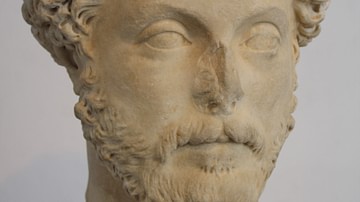
Definition
Marcus Aurelius
Marcus Aurelius (r. 161 to 180 CE) was a Roman emperor best known as the last of the Five Good Emperors of Rome (following Nerva, Trajan, Hadrian, and Antoninus Pius) and as the author of the philosophical work Meditations. Although it has...
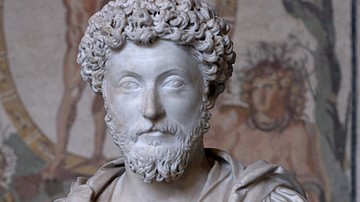
Article
Marcus Aurelius: Plato's Philosopher King
Plato's concept of the Philosopher-King (one who governs according to philosophical precepts and higher truths) is thought to be best exemplified through the Roman emperor Marcus Aurelius Antoninus (r. 161-180 CE), the last of the Five Good...

Article
Marcus Aurelius: Philosopher Emperor or Philosopher-King?
Co-authored by Steven Umbrello and Tina Forsee It is very common to hear in both academic circles, as well as more close-knit Stoic circles, Marcus Aurelius (121 – 180 CE) being referred to as the philosopher king. This is not an idea...
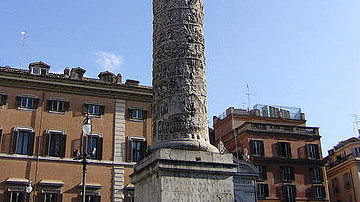
Article
The Column of Marcus Aurelius
The Column of Marcus Aurelius and Faustina which stands in Piazza Colonna in Rome is thought to have been erected by Commodus in memory of his father and mother sometime around 180 CE. The column was inspired by its more famous predecessor...

Video
Marcus Aurelius: The Philosopher & Emperor of the Roman Empire
Marcus Aurelius (r. 161 to 180 CE) was a Roman emperor best known as the last of the Five Good Emperors of Rome (following Nerva, Trajan, Hadrian, and Antoninus Pius) and as the author of the philosophical work Meditations. Although it has...
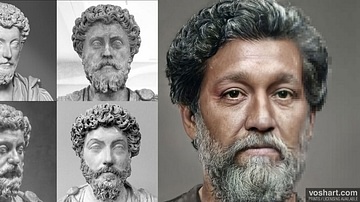
Image
Marcus Aurelius (Artistic Facial Reconstruction)
A photorealistic representation of what the Roman emperor Marcus Aurelius (r. 161-180 CE) may have looked like. Based on contemporary and near contemporary descriptions, as well as archaeological evidence. Pictured alongside the reconstruction...
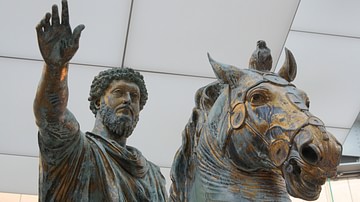
Image
Marcus Aurelius Equestrian Statue
A bronze gilded statue of Roman emperor Marcus Aurelius, larger-than-lifesize and most probably erected in 176 CE and placed in Rome, perhaps in the Forum. (Capitoline Museums, Palazzo dei Conservatori, Rome).
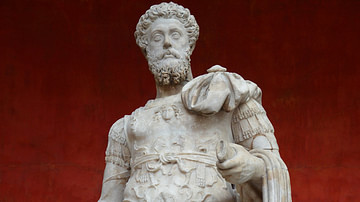
Image
Marcus Aurelius Statue, Ny Carlsberg Glyptotek
Marble statue of Roman emperor Marcus Aurelius (reign 161–180 CE). (Ny Carlsberg Glyptotek, Copenhagen)

Image
Marcus Aurelius, Palazzo Massimo
A marble bust of Roman emperor Marcus Aurelius (121 - 180 CE). From the Villa Adriana, Tivoli. 160-169 CE. (Palazzo Massimo, Rome)

Image
Marcus Aurelius on Campaign
A Roman bronze coin depicting Marcus Aurelius on campaign. 2nd century CE. (Numismatics Museum, Athens)